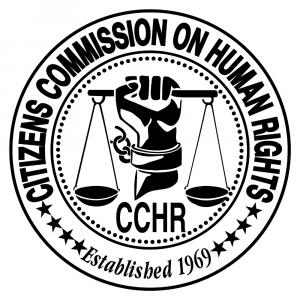World Health Organization Calls Involuntary Electroshock Treatment a Human Rights Abuse

New guidance from the World Health Organization and Office of UN High Commissioner for Human Rights states that people being offered ECT should also be made aware of all its risks and potential short- and long-term harmful effects, such as memory loss and
New guidance from World Health Organization and UN High Commissioner for Human Rights also calls for laws banning electroconvulsive therapy (ECT) for children.
Concerning electroshock, the new report, “Mental health, human rights and legislation: guidance and practice,” issued October 12, says “significant controversy surrounds the use of ECT and its associated risks,” noting that the procedure is now banned in Luxembourg and Slovenia and is declining in use in still other countries.
Electroconvulsive therapy is a procedure that sends a strong electrical current through brain tissue, causing convulsions, in an attempt to improve depression or other mental health conditions. It is not known how ECT is supposed to work. The U.S. Food and Drug Administration (FDA) has never required ECT treatment to be proven safe or effective.
For countries allowing it, including the United States, the WHO-OHCHR guidance says that ”ECT must only be administered with the written or documented, free and informed consent of the person concerned.” For the consent to be fully informed, WHO-OHCHR advises that “people being offered ECT should also be made aware of all its risks and potential short- and long-term harmful effects, such as memory loss and brain damage.”
Nonconsensual ECT may be considered a human rights abuse, according to the WHO-OHCHR publication. “International human rights standards clarify that ECT without consent violates the right to physical and mental integrity and may constitute torture and ill-treatment.”
The guidance opposes any use of ECT on children and calls for laws to be enacted to ban it: “ECT is not recommended for children, and this should be prohibited through legislation.” In the United States, reports filed at the state level on the use of ECT indicate that some children 5 years of age and younger are given electroshock.
The joint WHO–OHCHR guidance was issued to promote and assist countries in adopting, amending, or implementing mental health legislation which ensures that mental health policies and services meet international human rights standards, including the Convention on the Rights of Persons with Disabilities (CRPD), an international human rights treaty of the United Nations. The United States signed the CRPD in 2009.
The Citizens Commission on Human Rights (CCHR) advocates a total ban on ECT and continues to raise public awareness about the serious risks of harm from the procedure. More than 133,000 people have signed the CCHR online petition to ban ECT.
According to the FDA, electroshock can cause brain damage, cognitive impairment, permanent memory loss, prolonged or persistent seizures, worsening psychiatric symptoms, cardiovascular complications (including heart attacks), breathing complications and death.
Even psychiatrist Max Fink, considered “the grandfather of American ECT,” admitted that “the principal complications of ECT are death, brain damage, memory impairment and spontaneous seizures.”
“The minimisation of risks is not uncommon in ECT practice and research,” wrote professor of psychology John Read, Ph.D., after he and colleagues conducted three audits of patient information pamphlets about ECT. They found that pertinent information was omitted, including the lack of evidence of long-term benefits, the fact that it is not known how ECT is supposed to work, and that similar rates of effectiveness were achieved by people receiving sham (placebo) treatment. There is also no proof of any brain dysfunctions that ECT could correct, according to Read.
The FDA requires ECT machines to have signs next to them stating, “The long-term safety and effectiveness of ECT treatment has not been demonstrated,” Read observed.
CCHR recommends a complete physical examination with lab tests, nutritional and allergy screenings, and a review of all current medications to identify any physical causes of depression or other unwanted mental or behavioral symptoms, which might otherwise be misdiagnosed as a psychiatric disorder and incorrectly treated.
The Citizens Commission on Human Rights was co-founded in 1969 by members of the Church of Scientology and the late psychiatrist and humanitarian Thomas Szasz, M.D., recognized by many academics as modern psychiatry’s most authoritative critic, to eradicate abuses and restore human rights and dignity to the field of mental health. CCHR has been instrumental in obtaining hundreds of laws against psychiatric abuse and violations of human rights worldwide.
The CCHR National Affairs Office in Washington, DC, has advocated for mental health rights and protections at the state and federal level. The CCHR traveling exhibit, which has toured major cities worldwide and educated over 800,000 people on the history to the present day of abusive and racist psychiatric practices, has been displayed in Washington, DC, at the Congressional Black Caucus Foundation Annual Legislative Conference and other locations.
Anne Goedeke
Citizens Commission on Human Rights, National Affairs Office
+1 202-349-9267
email us here
Visit us on social media:
Facebook
CCHR: What We Believe
Legal Disclaimer:
EIN Presswire provides this news content "as is" without warranty of any kind. We do not accept any responsibility or liability for the accuracy, content, images, videos, licenses, completeness, legality, or reliability of the information contained in this article. If you have any complaints or copyright issues related to this article, kindly contact the author above.


